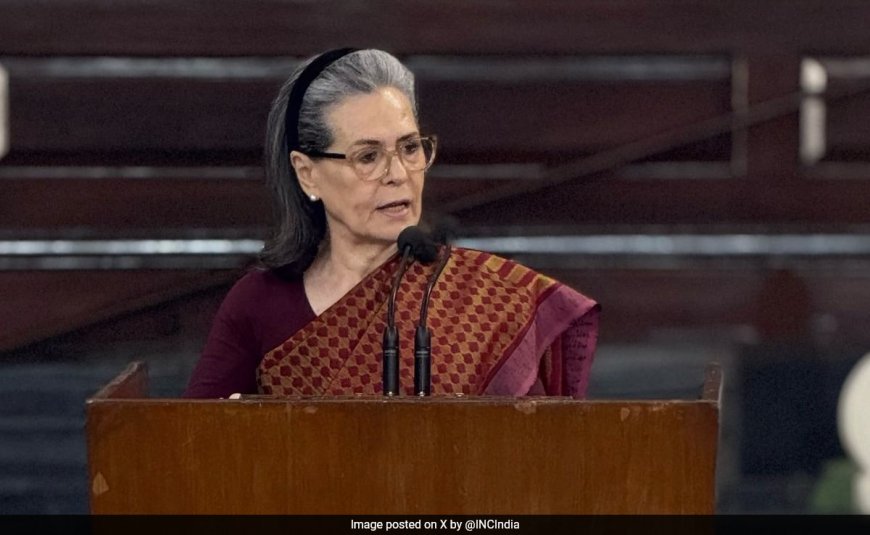Waqf Amendment Bill "Assault" On Constitution: Sonia Gandhi
Congress Parliamentary Party chairperson Sonia Gandhi on Thursday termed the Waqf (Amendment) Bill as a "brazen assault" on the Constitution, saying it was part of the BJP's strategy to keep society in a state of "permanent polarisation".

Waqf Amendment Bill "Assault" On Constitution: Sonia Gandhi
In a recent statement, Congress leader Sonia Gandhi has voiced strong opposition to the Waqf Amendment Bill, calling it an "assault" on the Constitution of India. This declaration has sparked a significant political debate across the nation, linking the proposed legislative changes with the protection and rights guaranteed under the Constitution.
Background of the Waqf Amendment Bill
The Waqf Amendment Bill aims to modify several provisions concerning the management and administration of waqf properties in India. Waqf properties, which are spaces or assets held for religious or charitable purposes, are managed by boards set up at both state and national levels. The Government asserts that the amendments are necessary to enhance the operational efficiency of waqf boards and ensure better utilization of waqf properties.
Sonia Gandhi's Concerns
Sonia Gandhi has articulated her concerns regarding the bill, emphasizing that its enactment would undermine the foundational principles of the Indian Constitution. She believes that the bill could alter the balance of power between the state and religious institutions, potentially leading to conflicts and controversies surrounding the management of waqf properties. Her stance highlights the fear that these amendments might strip minority communities of their rights over their historical and cultural assets.
Political Reactions and Implications
The statement from Sonia Gandhi has resonated with many opposition leaders and civil rights activists who feel that the bill could pose significant challenges to the minority communities in India. The issue has sparked protests and discussions among various stakeholders, including legal experts, community leaders, and political commentators who are analyzing the potential implications of this amendment.
What Happens Next?
As the bill proceeds through the legislative process, it is expected to face rigorous scrutiny and debate. Political parties may rally their supporters, leading to a broader discussion on the preservation of minority rights in India. The ongoing debate around the Waqf Amendment Bill highlights significant concerns about governance, secularism, and social equity amid evolving legislative frameworks.
For more updates, visit dharmyuddh.com.
The discourse surrounding this contentious amendment highlights the importance of safeguarding constitutional values in a diverse nation like India. Keywords: Waqf Amendment Bill, Sonia Gandhi remarks, Constitution of India, political implications, religious properties management, minority rights India, legislative changes in India, opposition parties reactions, social equity and governance, waqf properties debate







